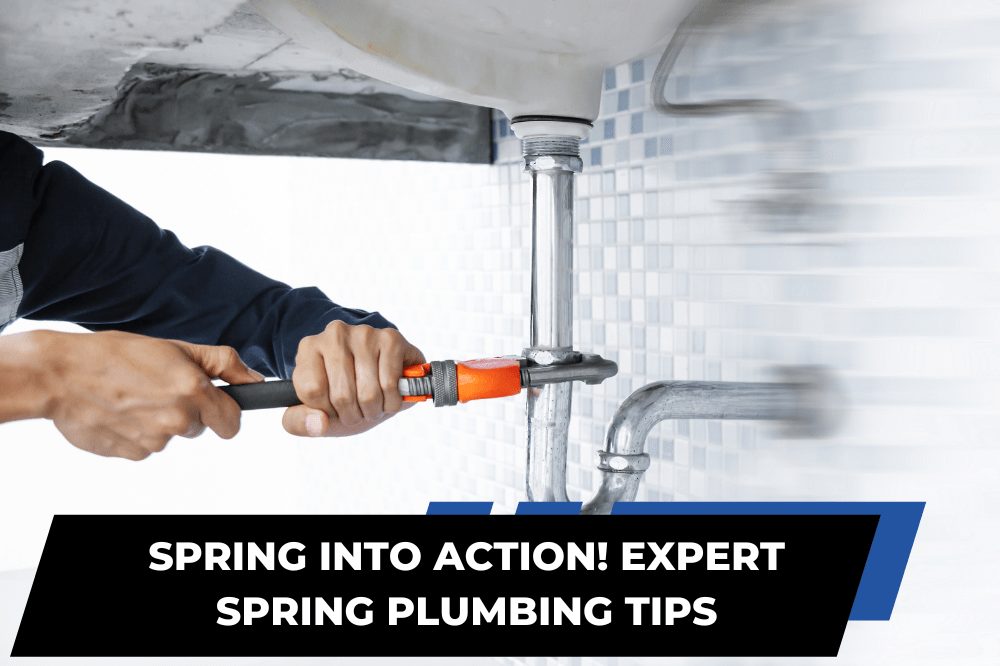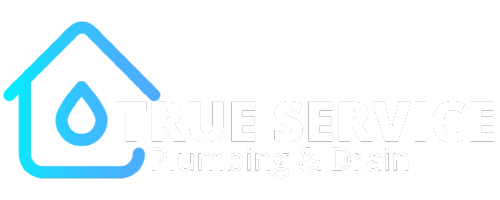As the cold winter months give way to the refreshing warmth of spring, it’s essential to ensure your home’s plumbing is in top condition. Following these spring plumbing tips can help you avoid costly repairs and keep your plumbing system functioning efficiently.
In this blog post, we’ll walk you through crucial spring plumbing maintenance tasks to prepare your home for the season ahead, ensuring peace of mind and smooth operation.
Who Should Perform Spring Plumbing Maintenance?
Homeowners vs. Professional Plumbers
Spring plumbing maintenance involves various tasks that range from simple inspections to more complex repairs.
Homeowners can handle basic tasks like inspecting for leaks, cleaning gutters, and checking outdoor faucets.
However, some tasks require professional expertise to ensure they are done correctly and safely.
Tasks for Homeowners:
- Inspecting for leaks in faucets and pipes
- Cleaning gutters and downspouts
- Checking outdoor faucets and hoses for damage
- Flushing the water heater
Tasks for Professional Plumbers:
- Detailed inspections of sewer lines
- Comprehensive water heater maintenance
- Repairing or replacing damaged pipes
- Checking and servicing sump pumps
What Are the Essential Spring Plumbing Maintenance Tasks?
To keep your plumbing system in top shape, focus on the following key tasks:
Inspect for Leaks
Start by inspecting all faucets, pipes, and fixtures for leaks. Check under sinks, around toilets, and any exposed pipes. Early detection of leaks can save you from expensive water damage and high utility bills.
Gutter Cleaning
Remove debris from gutters and downspouts to prevent clogs and water damage. Clogged gutters can cause water to overflow, leading to damage to your home’s foundation and landscaping.
Outdoor Faucets and Hoses
Inspect outdoor faucets and hoses for any damage that may have occurred during winter. Turn on the outdoor faucets and check for leaks. If the water pressure is low or you notice any leaks, it might be time to replace the faucet or hose.
Water Heater Maintenance
Flush your water heater to remove sediment buildup. Sediment can reduce the efficiency of your water heater and shorten its lifespan. Turn off the power supply, attach a garden hose to the drain valve, and let the water drain until it runs clear.
Sump Pump Check
Ensure your sump pump is working correctly to avoid basement flooding during spring rains. Pour a bucket of water into the sump pit to test if the pump activates and drains the water quickly. If it doesn’t, consider calling a professional for a thorough inspection.
Check Pipe Insulation
Inspect all pipes, especially those exposed to cold during winter. Make sure they are properly insulated to prevent them from cracking or freezing. Replace any damaged insulation as needed.
Tools and Supplies Needed:
- Wrenches and pliers
- Pipe insulation
- Gutter cleaning tools (scoop or garden trowel)
- Plumber’s tape
- Replacement parts (washers, hoses, fittings)
- Bucket and rags
When Is the Best Time to Start Spring Plumbing Maintenance?
The best time to start spring plumbing maintenance is as soon as the weather consistently stays above freezing. Typically, early to mid-spring is ideal.
Early inspection and maintenance can help you identify and address any issues that may have arisen during winter before they become major problems.
Where Should Homeowners Focus Their Efforts?
Outdoor Areas
Check garden hoses, faucets, and irrigation systems for any signs of damage. Clean gutters and downspouts to ensure proper drainage and prevent water damage to your home’s foundation.
Basements or Crawl Spaces
Inspect sump pumps and pipes for leaks. Ensure the sump pump is functioning correctly to prevent basement flooding. Look for any signs of moisture or mold, which could indicate leaks.
Bathrooms and Kitchens
Check under sinks and around toilets for leaks. Inspect the caulking around bathtubs and showers for cracks or gaps. Replace any damaged caulking to prevent water from seeping into walls and floors.
Water Heaters
Flush the water heater to remove sediment buildup. Inspect the tank and connections for signs of wear or corrosion. If your water heater is over 10 years old, consider having it inspected by a professional.
Main Water Shut-off Valve
Ensure the main water shut-off valve is functioning correctly. Knowing how to quickly shut off the water supply can prevent significant water damage in case of a major leak.
How Can Homeowners Prevent Plumbing Issues During Spring?
Regular Inspections
Conduct regular checks for leaks, corrosion, or any signs of damage. Regular inspections can help you catch small issues before they turn into major problems.
Proper Insulation
Ensure pipes are properly insulated to prevent them from cracking due to temperature changes. This is especially important for pipes located in unheated areas like basements, attics, and garages.
Maintenance Schedule
Follow a consistent maintenance schedule for your water heater, sump pump, and other plumbing systems. Regular maintenance can extend the lifespan of your plumbing fixtures and improve their efficiency.
Professional Services
Hire professional plumbers for annual inspections and maintenance of complex systems. A professional can identify potential issues that may not be obvious to the untrained eye.
Water Pressure Check
Ensure water pressure is within the recommended range to prevent stress on pipes and fixtures. High water pressure can cause pipes to burst, while low pressure can indicate a problem with the water supply line.
Clear Drains
Regularly clear drains and use drain covers to catch debris. This can prevent clogs and keep your plumbing system running smoothly.
Early Identification of Problems
- Listen for Unusual Sounds: Hissing, banging, or gurgling sounds can indicate problems.
- Monitor Water Bills: Unexpected increases may suggest a hidden leak.
- Check Water Quality: Changes in water color or pressure can signal issues.
- Visible Signs: Look for water stains, mold, or mildew, which can indicate leaks.
- Sewer Smells: Foul odors can suggest issues with the sewer line or vent pipes.
Conclusion
By following these spring plumbing tips, you can ensure your home’s plumbing system is ready for the warmer months ahead.
Regular maintenance helps prevent major issues and keeps your plumbing running efficiently, saving you money in the long run.
Whether you choose to tackle these tasks yourself or hire a professional, taking proactive steps now will give you peace of mind and a smoothly functioning plumbing system.
Contact True Service Plumbing for Your Spring Plumbing Needs
When it comes to spring plumbing maintenance in Toronto and the GTA, True Service Plumbing is your go-to choice for both residential and commercial services.
Our licensed professionals provide comprehensive solutions, from leak inspections and gutter cleaning to water heater maintenance and sump pump checks.
Facing plumbing issues this spring? Let our experts diagnose and resolve the problem efficiently, ensuring minimal disruption to your property.
Don’t let plumbing problems spoil your spring. Contact True Service Plumbing today. We’re here to ensure your plumbing systems are in perfect condition for the warmer months ahead.


